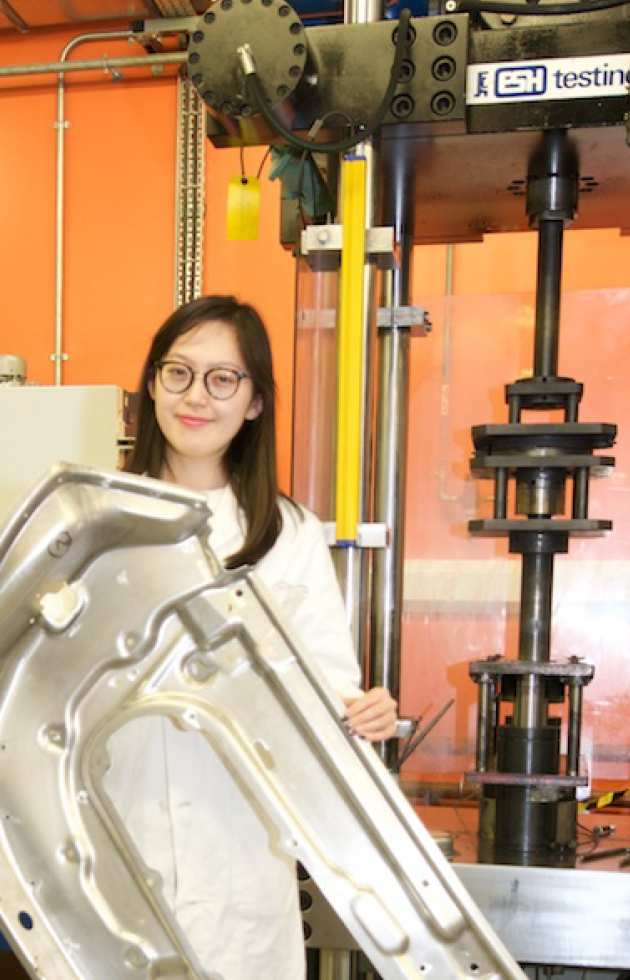Ailing
Ailing is a second year PhD student in the Mechanics of Materials Division.
"Imperial and London are the perfect combination. If I had to describe my experience so far in one word, it would be ‘amazing’."

When did you decide to do a PhD and why?
I studied for my undergraduate degree here in Mechanical Engineering at Imperial. I then had a year out studying another course elsewhere. Then, I decided to come back to study for a PhD.
I chose to come back for the PhD because my undergraduate project supervisor was offering a really good research topic and good support was available as well. I had stayed in touch with my supervisor whilst I was away from the College and so I was aware of the opportunity and we discussed it.
Can you describe your experiences studying a PhD here?
I am very well supported here. I am part of a big group (Mechanics of Materials) and I work directly with my supervisor and a post-doctoral researcher. They guide me very well. Imperial is very good generally and I enjoy life here. London is a very good place to live – there is always a lot to do as it is a capital city. Imperial and London are the perfect combination.
If I had to describe my experience so far in one word, it would be ‘amazing’.
What is your PhD research about?
My research is based on sheet metal forming. In particular, I am interested in aluminium and tailor welded blanks. My research has links to automotive and aerospace industry as it could, for example, help reduce the weight of a car and so reduce emissions.
In my project, I have a good balance of practical laboratory work and computer simulations. The facilities available to me are great and it is always possible to get the training that is needed to use equipment.
Have you participated in the activities offered by the Graduate School for PhD students?
I have completed a few courses in the Graduate School. I think they are very useful and provide a good exposure to a range of different topics. The Graduate School offers additional opportunities outside of the PhD project.
What would you say about the supervision you receive?
My supervisor arranges weekly meetings with all his PhD students so we can all discuss our progress and he can find out how we are getting along. My supervisor is always on campus so it is easy to talk if I have any particular problems. I also work with some post-doctoral researchers who assist me with specific experiments or tasks.
What advice would you offer to students considering applying for a PhD at Imperial?
When you take on a PhD project, you will be working on it for three to four years so it has to be something that you really like, so that you have enough motivation. Also, choose the place in which you want to be: the university and the location. It’s important to be able to achieve a good work/life balance.


